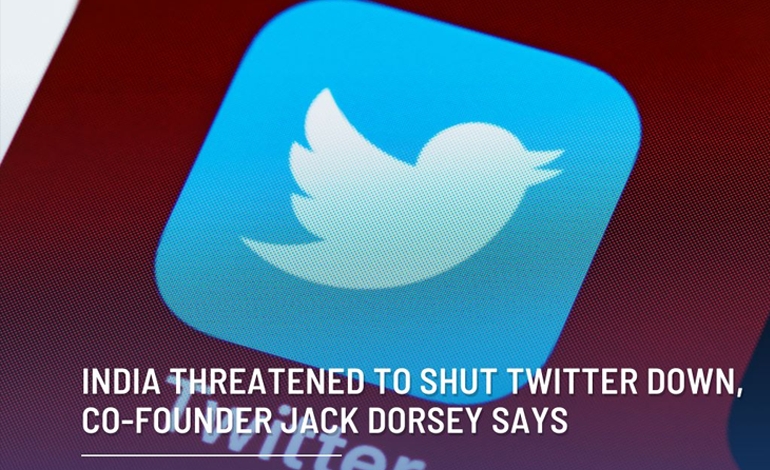
In a recent interview, Twitter co-founder Jack Dorsey revealed that India had threatened to shut down the social media platform unless it complied with government demands. Dorsey said that the Indian government had asked Twitter to remove content that it deemed to be "fake news" or "inflammatory." Twitter refused to comply with these demands, and the Indian government responded by threatening to block the platform.
The controversy between India and Twitter is just the latest in a series of clashes between the Indian government and social media platforms. In recent years, the Indian government has become increasingly hostile to social media, accusing it of being a platform for spreading misinformation and hate speech. The government has also passed laws that give it broad powers to regulate social media content.
The Indian government's threats against Twitter have raised concerns about freedom of speech in India. Many critics have accused the government of trying to silence dissent and control the flow of information. The controversy is also a reminder of the power that social media platforms have to challenge governments. Twitter has become a powerful tool for political organizing and dissent, and the Indian government is clearly worried about the platform's potential to undermine its authority.
The future of Twitter in India is uncertain. The government could continue to pressure the company to comply with its demands, or it could block the platform altogether. Either way, the controversy is a sign of the growing tensions between social media platforms and governments around the world.
What does this mean for you?
If you are a user of Twitter in India, you should be aware of the potential for the platform to be blocked by the government. You may also want to consider using other social media platforms that are less likely to be targeted by the government.
If you are a journalist or a content creator, you should be aware of the risks of publishing content that the Indian government may deem to be "fake news" or "inflammatory." You may want to consider self-censoring your content or using a VPN to access Twitter from outside of India.
The controversy between India and Twitter is a reminder of the importance of freedom of speech and the power of social media to challenge governments. It is also a reminder that the future of social media is uncertain, and that users should be prepared for governments to try to regulate or even shut down these platforms.